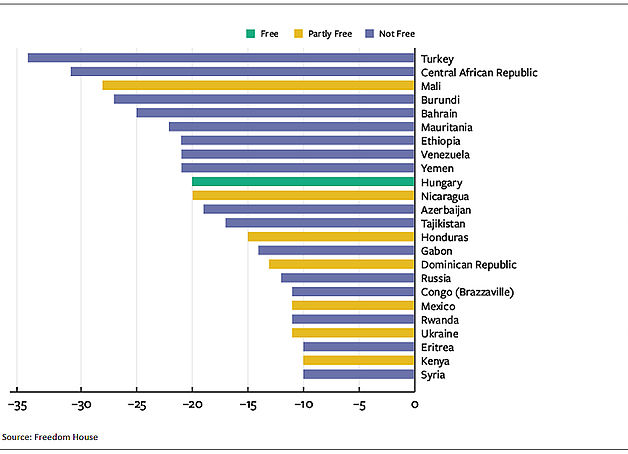In recent years, the world has witnessed a growing disillusionment with globalization as the gap between the rich and the poor widens and rapid technological change causes upheaval in labor markets. This has led to a retreat in the spread of democracy and a rise in authoritarianism, as well as a turn towards isolationist and protectionist policies.
This will pose a challenge to future business leaders. As the National Intelligence Council notes, democracies are generally more likely than autocracies to have predictable economic policies and produce steady economic growth and political liberalization is associated with higher subsequent quality of life. Democratic states are also less likely to go to war and generally tend to support one another.
- In their “Freedom in the World 2018” report, Freedom House finds that 2017 was the 12th consecutive year of decline in global freedom. Seventy-one countries registered net declines in political liberties in 2017, with only 35 states posting gains. China and Russia have taken advantage of this trend to export their influence to other countries.

Even within steadfast democratic states such as the UK and the US, there are widening schisms in political attitudes leading to unforeseen election results such as Brexit and the election of Donald Trump.
Escalating Uncertainties: Up close
The future will be determined by those who are willing to reinvest, adapt and turn future threats into opportunities.